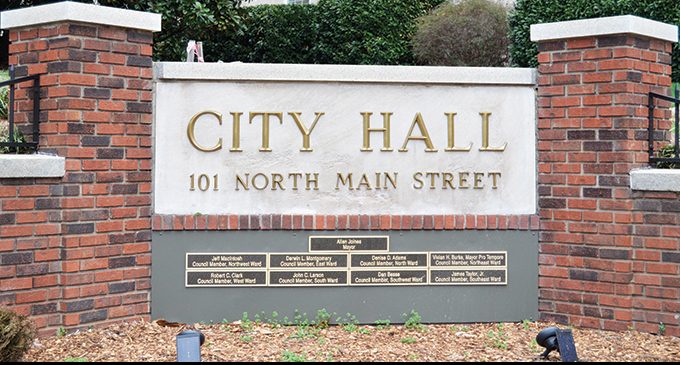City sues opioid companies

The City of Winston-Salem is suing opioid distributors and manufacturers.
The City Council voted on Monday, March 5, to declare the opioid crisis in the city a public nuisance and hire law firms to represent Winston-Salem in the lawsuit. Like the county’s opioid lawsuit, the law firms will be paid 25 percent of any monetary recovery, so the lawsuit won’t cost taxpayers money. Also, like the county’s lawsuit, it will be grouped together with other similar suits in multi-district litigation, but will not be a class-action case.
The overuse of legal prescription opioids is being widely blamed for the current crisis of opioid addiction that is taxing first responders, jails and social services across the nation. Opioids are highly addictive and are easy to accidentally overdose on. The number of opioid related deaths in Forsyth County jumped from 13 in 2005 to 52 in 2015. According to a city memo from Feb. 27, the overdose reversal drug Narcan has been administered 31 times to 32 local patients in 2018 and there has already been six opioid related deaths. Nationally, there were 42,000 opioid related deaths in 2016.
“One of the most effective things that we as a city can do to attack this problem is to ensure that that incentive to over recommend, over distribute, and ending in the result of over prescription of these drugs, is to change the economic situation, remove the incentive to do that,” said City Council Member Dan Besse.
Besse and City Council Member Denise “D.D.” Adams both supported the suit, but recused themselves on the vote that selected the law firm to avoid the appearance of impropriety since they may have received campaign contributions from the parties involved.
The city hired local attorney Garry Whitaker and McHugh Fuller Law Group, a Mississippi-based firm, along with a consortium of about six other law firms, for the lawsuit. Attorney Garry Whitaker said that the city is among more than 200 government entities that filled lawsuits against opioid companies.
“There are established laws on the books regarding reporting requirements to the Drug Enforcement Administration and those were rules that were broken and as a consequence, we say folks are dying,” said Whitaker. “We certainly know the addiction rates have increased exponentially over the last 20 years.”
The lawsuits are being overseen by U.S. District Judge Dan Polster in Ohio, who is pushing to have the DEA provide both sides in the lawsuits with information about legal opioid distribution, though that information won’t be made public unless there’s a trial. The lawsuits say that manufacturers overstated benefits and downplayed the risks of opioids while distributors failed to properly monitor and report suspicious orders of prescription painkillers.
The Healthcare Distribution Alliance, which represents distributors, is pushing back against the lawsuits, saying that distributors do not drive demand for the drugs. The trade association also said the companies involved complied with the DEA’s rules and reported every opioid order to the DEA.
“Those bringing lawsuits would be better served addressing the root causes, rather than trying to redirect blame through litigation,” said John Parker, the Alliance’s senior vice-president of communication.
Also during the meeting, the City Council approved $147,834 in incentives over five years to Clearing House Payments Company LLC to expand its local facility in the Southeast Ward and create 50 new jobs with an average wage of $98,361 a year.















